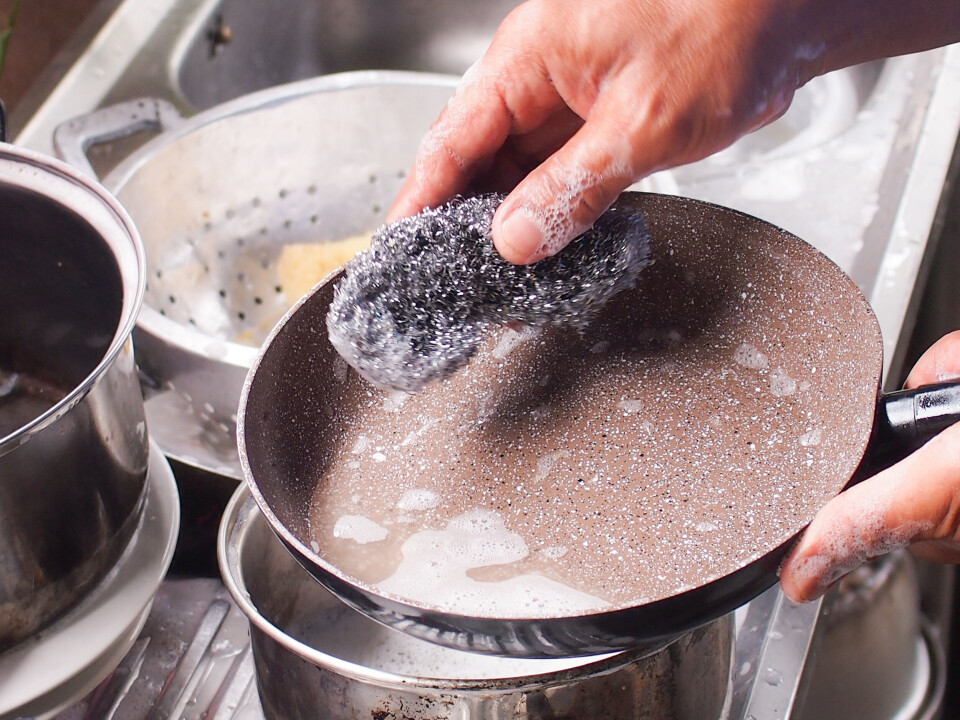-
Cyberattack on La Poste: are Christmas parcels impacted?
Parcel tracking services remain down for second day
-
Christmas gifts and food: How much are French households spending this year?
People are buying nine presents each on average
-
Confrontations with wild boar increase in France despite more hunts
Boar numbers are rising and the ‘unpredictable’ animals can cause serious injury
Potentially toxic ‘forever chemicals’ are poorly monitored in France
Scientists fear the chemicals can cause cancer, liver damage, hormonal dysfunction and a weaker immune system. But, so far, there has been little conclusive research

Potentially toxic ‘forever chemicals’ (known as ‘PFAS’) are present in France but monitoring of their presence in the environment is almost non-existent, a new study has found.
“French regulations are still lacking on industrial emissions of PFAS and data on their monitoring is almost non-existent,” said a report from the environmental and sustainable development inspectorate l’Inspection générale de l’environnement et du développement durable (IGEDD).
“In short, their presence in the environment is not monitored or is very poorly monitored, and we do not know how to eliminate them."
What are ‘forever chemicals’?
PFAS - ‘forever chemicals’ - stands for ‘per- and polyfluoroalkyl substances’.
The EU defines them as “a large class of thousands of synthetic chemicals that are used throughout society”, and which are “increasingly detected as environmental pollutants”. It also states that “some are linked to negative effects on human health”.
PFAS can remain in the environment for hundreds or even thousands of years, and have a lasting effect on human health. The EU states that they can have negative effects on the endocrine (hormonal) and reproductive systems, and could even contribute to causing cancer.
Where are ‘forever chemicals’ found?
The chemicals are often found in textiles, food packaging, cooking implements, medical devices, electronics, and cosmetics, and can even be found in items like ski wax or engine grease. Manufacturers use them for their anti-adhesive, waterproofing, and heat-resistant qualities.
They are also often used in firefighting foam, especially for hydrocarbon fires. The IGEDD report identified 1,000 locations where these foams have been used since 2010.
Last year, an investigation by the France 2 TV show Envoyé Spécial found abnormally-high levels of the chemicals near a factory in the countryside near Lyon.
PFAS can also be easily passed into groundwater, surface water, soil, and drinking water; as well as in vegetables, plus some animal products like fish, eggs, dairy, and meat.
What health risks do forever chemicals pose?
There are around 4,700 of these compounds that exist in the environment and experts say a substance-by-substance risk assessment would be difficult.
Scientists fear they can cause cancer, liver damage, hormonal dysfunction and a weaker immune system.
But there has been little conclusive research, so far.
The fear is that while levels of ‘forever chemicals’ may be low, they will accumulate in the environment and the human body over time.
What are the current PFAS regulations in France?
There are no regulations on their use in food packaging in France (in contrast, they have been banned in Denmark for this use since 2020).
Since 2020 and 2009, France’s health and safety agency Anses has issued recommended maximum levels for some PFAS and PFOS (perfluorooctanesulfonic acids). The chemicals have so far been found in 85% of the rivers and lakes tested.
By 2026, France will need to follow European directives that limit the quantity of PFAS in drinking water, which is often particularly affected. Currently, the IGEDD said that France’s 22,000 water treatment plans do not adequately monitor PFAS levels.
Studies in 2011 and 2015 found that on average, water in France had levels five times higher than the European Commission’s proposed quality threshold limit (28 nanograms per litre, versus the limit of 4.4 nanograms). The Rivers Seine, Oise, Orge, Aisne, Marne, and Yonne were all affected.
Some PFAS and other related compounds are already restricted in the EU, in a bid to eliminate their use, while more regulations came into force in February this year..
PFAS are very difficult to get rid of and require temperatures of more than 900C (for example, through industrial incinerators) to be eliminated.
The IGEDD report said that atmospheric contamination could be caused by “household incinerators” that do not reach this temperature, and by a “lack of standards and analytical methods” of France’s 126 industrial incinerators.
How has the government responded to the report?
The report was commissioned in February 2022 by then-Ecology Minister Barbara Pompili and released this month (Friday, April 14) after six months of delay.
“This report provides a solid foundation on which we can develop knowledge about reducing the risks of PFAS. It also confirms the relevance of the action announced by the government in the action plan published in January,” said current Ecology Minister Christophe Béchu.
How can I reduce my exposure to ‘forever chemicals’?
PFAS are extremely common, but there are some things you can do to reduce your exposure. Clean water campaigners advise:
-
Replace non-stick cookware with stainless steel or cast-iron alternatives
-
Reduce the heat on non-stick cookware if you still use it, and avoid scrubbing it when cleaning
-
Replace cookware if the non-stick coating shows signs of damage
-
Filter your water using activated charcoal or reverse osmosis filters
-
Use metal or glass containers to store or transport leftover food
-
Reduce your use of fast food wrappers and boxes or grease-repellent food packaging
-
Use PFAS-free teeth floss
-
Avoid stain-resistant coatings on furniture and instead choose darker, polyester-based fabrics that are easier to clean
-
Avoid any products that have PTFE, ‘fluoro’, ‘perfluoro’ or‘’perfluor’ in their ingredients list (such as cosmetics and household cleaning items)
-
Avoid clothes and fabrics with water- or grease-resistant coatings like Gore-Tex
Related articles
12 million people in France have drunk pesticide-contaminated water
























